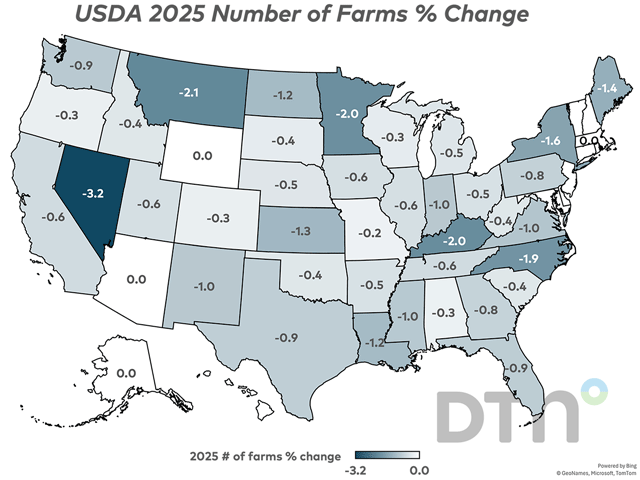Glyphosate Labels Blocked
Federal Court: Glyphosate Cancer Link Warning 'False and Misleading'
OMAHA (DTN) -- A federal judge has blocked a California Proposition 65 requirement that products that may contain glyphosate must include a warning label stating the chemical is known to cause cancer.
The requirement, which was set to take effect in July, was challenged by a number of agriculture groups as well as attorneys general in 11 states.
In an opinion handed down on Monday by the U.S. District Court for the Eastern District of California, Judge William B. Shubb said the state's requirement would run contrary to a broader body of science on glyphosate.
"On the evidence before the court, the required warning for glyphosate does not appear to be factually accurate and uncontroversial because it conveys the message that glyphosate's carcinogenicity is an undisputed fact, when almost all other regulators have concluded that there is insufficient evidence that glyphosate causes cancer," Shubb wrote in granting a preliminary injunction on the label requirement.
"It is inherently misleading for a warning to state that a chemical is known to the state of California to cause cancer based on the finding of one organization. However, where California seeks to compel businesses to provide cancer warnings, the warnings must be factually accurate and not misleading. As applied to glyphosate, the required warnings are false and misleading."
The vast body of science done on the chemical has found no direct link between glyphosate and human cancers.
At the end of December 2017, the U.S. Environmental Protection Agency announced in its draft risk assessment of glyphosate that the herbicide is not likely to be carcinogenic to humans.
P[L1] D[0x0] M[300x250] OOP[F] ADUNIT[] T[]
Though glyphosate was developed by Monsanto, it is off-patent and sold by many agriculture companies as one of the most widely used herbicides in the world. It came to market in 1974 under Monsanto's Roundup label for control of perennial and annual weeds in non-crop and industrial areas.
Agricultural crops genetically engineered to withstand glyphosate have greatly expanded the use of the chemistry since 1996. Glyphosate is also used in forestry, urban, lawn and garden applications.
That broad use has drawn worldwide attention to the herbicide and to its safety.
In January, attorneys general in 11 states joined agriculture groups in asking the court to block the label requirement. Those states include Idaho, Indiana, Iowa, Kansas, Louisiana, Michigan, Missouri, North Dakota, Oklahoma, South Dakota and Wisconsin.
On Dec. 27, 2017, a temporary injunction was requested by the National Association of Wheat Growers, along with the Agribusiness Association of Iowa, the Agricultural Retailers Association, Associated Industries of Missouri, Iowa Soybean Association, Missouri Chamber of Commerce and Industry, CropLife America, Missouri Farm Bureau, National Corn Growers Association, North Dakota Grain Growers Association, South Dakota Agri-Business Association and United States Durum Growers Association.
In addition, the U.S. Chamber of Commerce and the California Chamber of Commerce filed amicus briefs in support of the preliminary injunction.
At the end of November 2017, the European Union approved a five-year extension of glyphosate's use. Agriculture interests had wanted a 15-year extension.
In 2015, the International Agency for Research on Cancer, a World Health Organization agency, concluded glyphosate was "probably carcinogenic."
IARC came under fire as a result of its broad declarations about what is carcinogenic in summary reports the IARC calls "monographs." The agency, for instance, drew scorn in 2015 for a monograph classifying processed red meats such as bacon as carcinogenic.
The IARC's glyphosate finding set off a series of reactions. The EPA released and retracted a report refuting the IARC's conclusion in 2015.
Monsanto has been sued dozens of times by people claiming various cancers linked to glyphosate exposure. Nearly every one of those cases filed cite the IARC findings.
The attorneys general in the California case argued the label requirement violated the right of "sovereign states to craft their own public policy and inflicts significant damage on the people and economies of other states." They argued the California law creates an incentive for the state's businesses to "abandon glyphosate products altogether."
Todd Neeley can be reached at todd.neeley@dtn.com
Follow him on Twitter @toddneeleyDTN
(AG/BE)
Copyright 2018 DTN/The Progressive Farmer. All rights reserved.



